 |
| An innyard in Shropshire |
Wyndham suggested that his servant Henry Peters should
accompany Lord Wilmot to the King’s Arms at Sarum (Salisbury), “where he and many of his
friends had sheltered in the time of troubles.” Peters would put Wilmot in touch with Wyndham’s
relative John Coventry, “with whom he had kept intelligence, in order to the
king’s service, ever since his majesty had set foot in Scotland, and Wyndham
assured Charles that Coventry “would think himself highly honored to correspond
in this matchless employment, the king’s preservation.”
 |
| King's Arms, Salisbury, about 1908 drawing from Alan Fea's The Flight of the King |
Now – how did it happen that a party of soldiers had been
pursuing the king the previous day?
After Charles left the Queen’s Arms at Charmouth, Wilmot
discovered that his horse had cast a shoe, and he asked the ostler at the inn
to take it to the blacksmith. According
to William Ellesden’s account, the smith, a man named Hammet, said, “This horse
hath but three shoes on, and they were set in three several counties, and one
of them in Worcestershire.”  |
| A suspicious blacksmith |
As it happened, the ostler was “one of Captain Macy’s
soldiers, a notorious knave,” working at the inn to make a little extra money. His curiosity had already been aroused the
night before when Wyndham and Peters “went out so late at night toward the seaside,
and … the rest of the company, during their absence, were more private than
travellers are wont to be, and perhaps inspired and prompted by the devil, [he]
suspected one of these guests to be the king.”
The smith’s words only confirmed the ostler’s suspicions, and
he told the landlady of the inn what he thought. She, who might already have guessed the same
thing, “very passionately rebuked the ostler for these insolencies, hoping by
that means to put a stop to his (as she judged) treasonable projects.” But the ostler would not be put off, and sought
out the local parson, the Reverend Doctor Benjamin Westly, the
great-grandfather of John Wesley, founder of the Methodist movement.
The parson, however, was praying, and would not be disturbed. The ostler, worried about losing his tip if he wasn’t there when Wilmot’s horse was ready for him, went back to the inn. But after Wilmot had left, the ostler returned to Westly, now done praying, and confided his suspicions. Both of them confronted the landlady, who seems to have been related to Mistress Quickly of Falstaff’s local, the Boar’s Head Tavern in Eastcheap.
 |
| Mistress Quickly, right, watches Falstaff |
Westly: Why how now, Margaret? You are a maid of honor now.
Landlady: What mean you by that, Mr. Parson?
Westly: Why, Charles Stuart lay last night at your house,
and kissed you at his departure; so that now you can’t but be a maid of honor.
Landlady: I’faith, you are a scurvy, ill-conditioned man, to
go about to bring me and my house into trouble.
But if I thought it was the king, as you say it was, I would think the
better of my lips all the days of my life; and so, Mr. Parson, get you out of
my house, or else I’ll get those shall kick you out.
The parson and the ostler now went off to the justice of the
peace, “and earnestly pressed him to raise the county by his warrants…. But he …
thinking it very unlikely that the king should be in these parts, notwithstanding
all the parson’s bawling and the strong probabilities upon which their
conjectures seemed to be grounded, utterly rejected his council, fearing lest
he should make himself ridiculous to all the county by such an undertaking.”
The ostler finally did what he should have done in the first
place, and went to his commanding officer. Captain Macy (or Massey, depending
on the account), no doubt keenly conscious of the thousand pound reward for the
king’s capture as well as his duty, “having no sooner received the report of
these surmises, and information on what horses and in what equipage, and which
way the persons suspected made their departure from Charmouth …instantly
resolves to leave no means unattempted, that with the least show of probability
might conduce to his majesty’s attachment.
“In pursuance of which he presently mounts, and setting
spurs to his horse, in a full career he rides toward Bridport, where, at his
arrival, after a little inquiry made, he was given to understand that some
persons, with whom the descriptions he had received most exactly suited, had
dined at the George that day, but not long before his coming were departed
towards Dorchester. This, therefore, was
the next place to which he posted … which he no sooner entered, but (as if he
had been to execute some warrant for the apprehending the most notorious felon
in the kingdom … he searched all the inns and alehouses in the town.”
 |
| Oliver Cromwell who very much wanted to capture Charles |
According to Anne Wyndham, “the report of the king’s being
at Charmouth was grown so common, that the soldiers … searched the houses of
several gentlemen who were accounted royalists, thinking to surprise him.” Pilisdon, the home of Sir Hugh Wyndham, Frank
Wyndham’s uncle, “was twice rifled."
 |
| Sir Hugh Wyndham |
 |
| A young lady of the mid 17th century not looking much like Charles II |
"They
took the old baronet, his lady, daughters, and whole family, and set a guard
upon them in the hall, whilst they examine every corner, not sparing either trunk
or box. Then taking a particular view of
their prisoners, they seize a lovely young lady, saying she was the king
disguised in woman’s apparel. At length
being convinced of their gross and rude mistake, they desisted from offering
any further violence to that family.”
Just as alarmingly, Captain Ellesden, who had undertaken to
find a ship for Charles but perhaps was now trying to hedge his bets, arrived
at Pilisdon, “and enquired of Sir Hugh and his lady for the king and colonel, confidently
affirming that they must needs be there.”
But, as Ellesden wrote triumphantly (much later, when it was
safe once more to be a Royalist), “God … was graciously pleased to make this
furious hunter to overrun the game he hunted for.”
Macy and his men didn’t get to the George at Broadwinsor,
and by the next day, Charles had once more safely reached Trent Manor, where he
could bide his time in Lady Wyndham’s chamber with its priest hole.
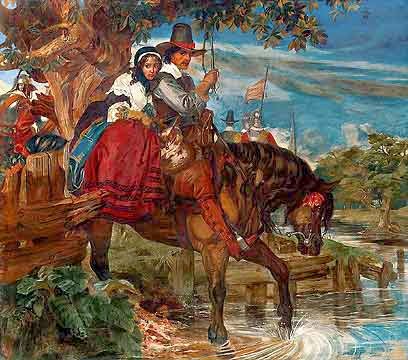
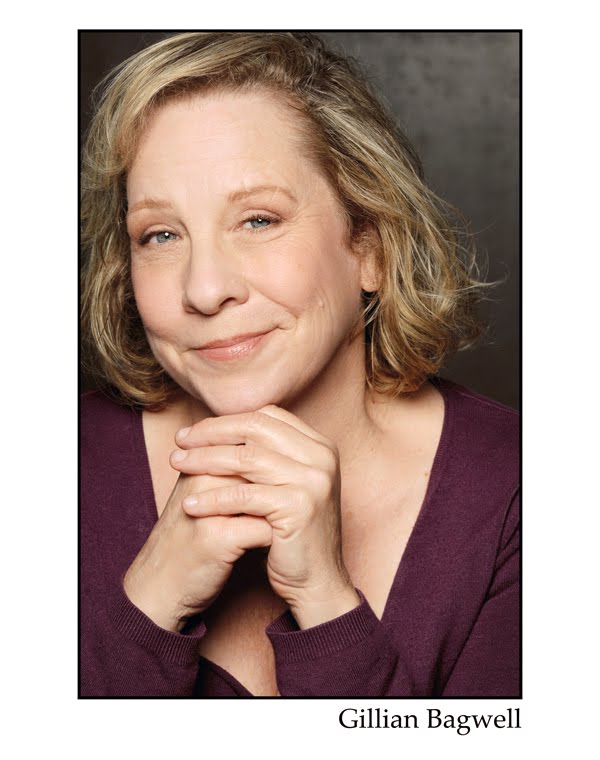
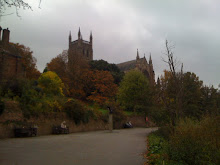
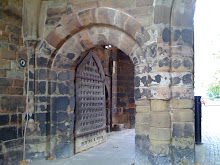



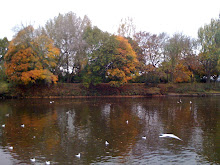
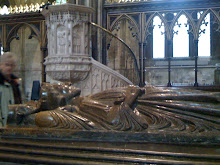
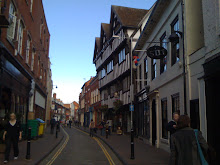

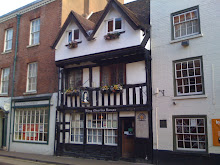
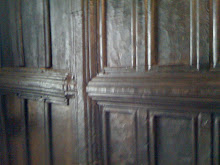
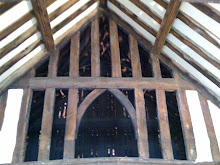



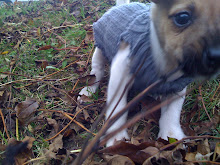

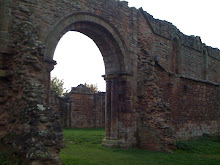




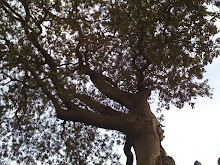



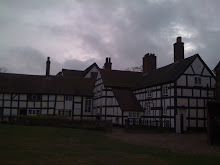

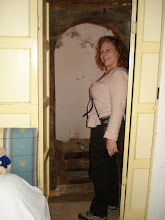
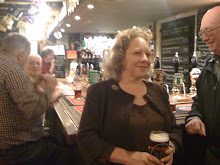
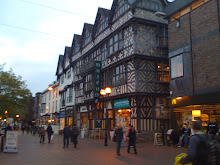
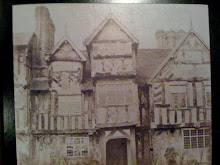


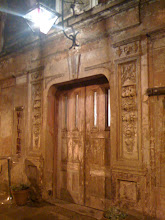
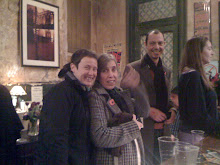


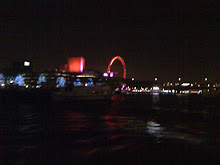

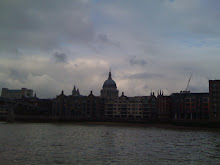
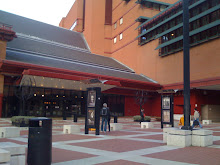

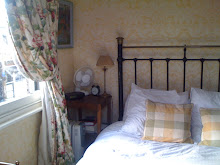






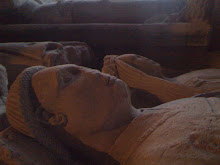
No comments:
Post a Comment